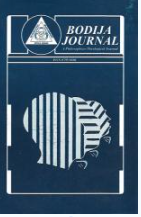Thomas Aquinas on Christ’s Death and Resurrection: Responding to the Mystery of Death
Abstract
On whether Christ was the cause of his own Resurrection, Thomas Aquinas says, “Christ’s Godhead was not separated from His soul, nor from His flesh. Consequently, both the soul and the flesh of the dead Christ can be considered in two respects: first, in respect of His Godhead; secondly, in respect of His created nature. Therefore, according to the virtue of the Godhead united to it, the body took back again the soul which it had laid aside, and the soul took back again the body which it had abandoned: and thus, Christ rose by His own power” (ST III, q. 53, a. 4). The conclusion Thomas draws here is premised on what he said earlier in ST III, q. 50, aa. 2, 3 that, when Christ died, the Godhead was not separated from his flesh, and there was not a severance between His Godhead and His soul. Thus, he rose again by his power as God. This essay makes the case that since we are united with Christ by virtue of the human nature that he took to himself, we shall also rise with him. Christ’s Godhead is the principal efficient cause of his own resurrection and our resurrection; and his humanity is the instrumental efficient cause of our resurrection, because we are united with him on account of the flesh that he took to himself. It is in this sense that this essay proposes that Christ’s resurrection sheds light on the mystery of human death, since the human body also rises again as did the body of Christ.


